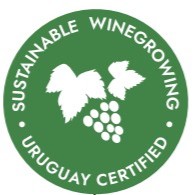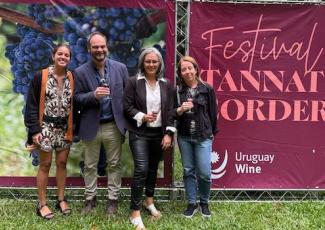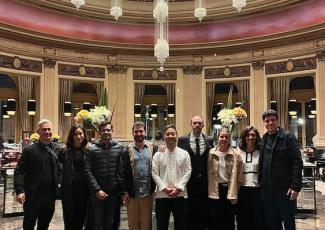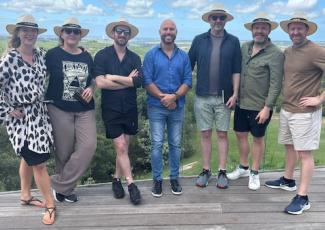
Sustainable Viticulture Program
In 2023, more than 30% of Uruguayan wine production will be certified by the National Program for Sustainable Viticulture, and some 30 wineries will be able to identify their wines with the Sustainable Winegrowing Uruguay Certified seal. This was presented at the closing technical conference of the project Fund for the Promotion of Agricultural Technology 353 (FPTA), carried out by the Uruguayan Federation of CREA groups (FUCREA), which leaves the execution and consolidation in the hands of the National Institute of Viticulture (INAVI). of the program.
The objective of the program is to make the production processes of the grapes with which the wines are made transparent and guarantee to the consumer that they have followed production protocols that seek to care for the environment, work conditions and obtain innocuous raw materials, without neglecting the economic viability of the ventures, fundamental bases contained in the concept of sustainability of the production process.
Thanks to this, Uruguayan wines are making progress in sustainability standards. The certification is carried out by LSQA (Laboratorio Tecnológico del Uruguay + Quality Austria), an entity of recognized international prestige, which guarantees traceability and compliance with pre-established processes.
The execution of the FPTA 353 project was in charge of FUCREA and its associated viticulturists, in addition to INAVI and the VICCA cooperative; successfully promoting, after 4 years of work, the consolidation of the sustainable viticulture program, which establishes standards for vineyard management.
In 2023, 162 vineyards will be certified, which represents 1,846 hectares of vines and 31% of the total planted in the country. At the same time, 30 wineries are expected to produce wine with certified sustainable grapes, which will allow the use of the seal on their bottles.
During the closing session of the project, the president of INAVI, winemaker Ricardo Cabrera, highlighted that the association of efforts, the commitment and the generosity of ideas between the National Institute for Agricultural Research (INIA), FUCREA, Cooperativa VICCA and INAVI "made possible the Sustainable Viticulture Program and showed that we are on the right track. No less important has been LSQA, in a task as significant as certification”.
He also stressed that “the future of our production and processing must follow the path of sustainability. There is no future for our products if they do not meet this quality complement. We have stood out for wines with exceptional profiles and typicities, leaving us with the general trace of sustainability. The country brand protected by this program that today is a reality throughout the world and in a short time will be a healthy obligation”.
Cabrera, in turn, pointed out that both the previous board of directors and the current one “have approved each and every one of the initiatives, with the sole return of the satisfaction of fulfilling each stage towards the responsibility of the actions. I cannot and must not forget the management that we will have to undertake from now on. We love the challenge of growing, and we will do everything to make it happen."
At the meeting, a round table discussion was held on the future of the program, in which the INAVI technical adviser, Agronomist Eduardo Félix, Agronomist Andrés Coniberti, from INIA, and Agronomist Ana Varzi, from LSQA participated. , Diego Spinoglio representing the CREA groups and Adrián Suárez representing the VICCA Cooperative.
The technicians and producers agreed on the enormous challenge that the program faces, especially to project itself to the world.
The National Program for Sustainable Viticulture seeks to promote viticulture that is respectful of the environment, encouraging more careful management practices that reduce the impact on the environment, also maximizing health and safety in working conditions.
A committee of experts permanently monitors what happens in the vineyards and its mission is to incorporate improvements and adjustments in production regulations, always seeking to deepen and evolve towards environmental care and production sustainability, a requirement growing national and international consumer.


